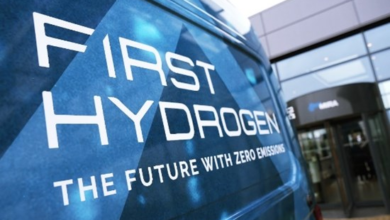Jericho Energy Ventures invests in H2U Technologies
H2U will use the funds to advance the development of its proprietary electrocatalyst discovery process and machinery

Jericho Energy Ventures has led a Series A financing for H2U Technologies, Inc., a company focused on developing its proprietary, AI-driven, electrocatalyst discovery process for electrolyser and fuel cell applications.
Jericho’s US$ 1.5 million co-lead investment is joined by Dolby Family Ventures, Hess Corporation and Motus Ventures – with a total Series A raise of US$ 7 million. All the Co-Leads will have board representation.
H2U plan to use the funding to support the development of its proprietary electrocatalyst discovery process, machinery and other parts of the business. It also aims to develop a PEM electrolyser technology using its proprietary catalysts, breakthrough sub-component innovations and manufacturing processes.
H2U aims to replace precious metal catalysts with cheap, stable, and effective electrocatalysts. The company has already developed and now testing two potential catalysts that will be the focal point of commercialisation efforts in the near term.
Ryan Breen, Head of Corporate Strategy at JEV, states, “H2U’s catalyst discovery process is a distinct advantage over traditional catalyst companies looking to serve the hydrogen market. Driving down the cost of green hydrogen is of vital importance to its adoption, and JEV seeks to play a market-leading role in that pursuit.”
H2U is the commercialisation of technology exclusively licensed to H2U by Caltech. It is developed under a $122 million Joint Center for Artificial Photosynthesis (JCAP) program to find cost-effective methods to produce fuels using only sunlight, water, and CO2. The programme was established by the Department of Energy and a group of universities, including the California Institute of Technology, University of California, Berkley, Stanford University, UC Irvine, and UC San Diego.
H2U has also been working with Southern California Gas Co. (SoCalGas) for developing an electrolyser with a cost target of half that of current PEM electrolysers.
